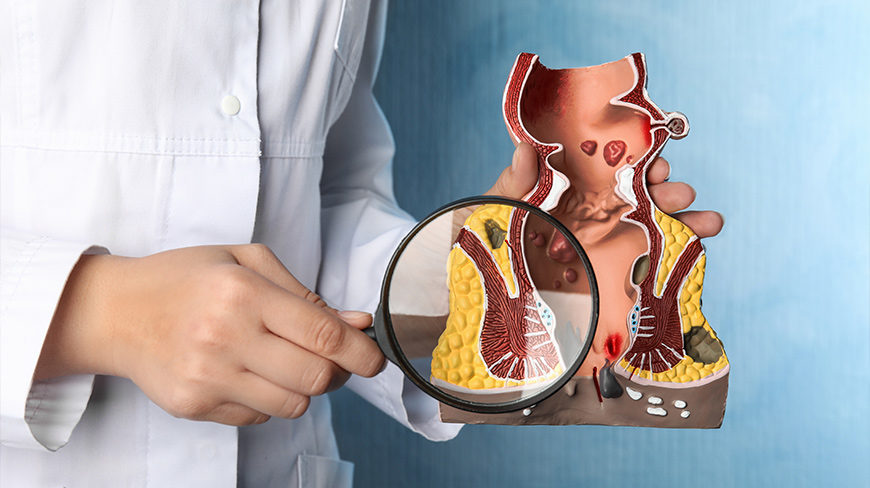Is Cologuard as good as a Colonoscopy?
You may have already seen the commercial with the talking colon that says how easy and convenient a Cologuard is, but is it a “good” test? The simple answer is No. Is Cologuard better than no test at all? Yes!
Colon cancer claims over 50,000 lives every year and is the 2nd most common cause of cancer death in the US. Colon cancer is preventable, treatable, and beatable – but only with early and accurate detection.
All Gastroenterology Consultants of San Antonio (GCSA) physicians agree that any CRC screening test is better than doing nothing at all. Patients need to understand the limitations and costs of CRC screening tests before making the testing decision with their physician.
Types of Colorectal Cancer (CRC) Screening
Because colon cancer begins as growths called polyps, finding and removing polyps is the best way to prevent colon cancer. There are three types of CRC screening:
- Colonoscopy – 95% of large polyps detected
- Stool DNA (Cologuard) – 42% of large polyps detected
- Fecal Immunochemical Test (FIT) – 30% of large polyps detected
Colonoscopy is the gold standard for finding polyps. If polyps are found during a colonoscopy, they are removed during the same single procedure. This eliminates the need for additional procedures or tests.
If polyps are found through FIT or a Cologuard, a colonoscopy must be performed to remove the polyps.
Unfortunately, the majority of large polyps go undetected with FIT and Cologuard. When polyps aren’t found and removed it increases the risk of developing colon cancer.
Undergoing a colonoscopy may not be the most pleasant experience one could have, but once it is complete, there is not only a lasting peace of mind, most will not need to have the test performed again for another 10 years. However, due to its inability to detect most high-risk precancers, patients who bypass a colonoscopy for a Cologuard screening will need to repeat the test in just three years.
Cologuard vs Colonoscopy
Here are some facts about Cologuard vs Colonoscopy:
- Stool DNA (Cologuard) testing are designed for cancer detection not prevention. Colonoscopy is detection and prevention and only needs to be done every 10 years for cancer-free patients.
- Stool DNA (Cologuard) testing has a 12% false positive rate. A positive test requires a diagnostic colonoscopy to remove cancerous polyps.
- Screening colonoscopies are not subject to copays and deductibles and usually have no out of pocket costs for patients. Diagnostic testing is subject to deductibles and coinsurance. The 12% false positive rate of Stool DNA (Cologuard) will increase the cost for most patients over the 10-year screening period.
- Stool DNA (Cologuard) is not indicated for high-risk patients (family history of CRC, IBD, personal history of polyps) or for those with gastrointestinal symptoms.
Cologuard: Detection Not Prevention
The Cologuard is designed to detect cancer not prevent it. Cologuard can only detect 42% of large polyps, while a colonoscopy can detect 95% of large polyps.
When polyps are detected during a colonoscopy they are removed at the same time. If polyps are detected with Cologuard, a colonoscopy must be performed to remove them.
The majority of large precancerous polyps cannot be detected with Cologuard. This may give patients a false sense that they are preventing colon cancer by taking the Cologuard.
In short, there is no true replacement for a colonoscopy. Thanks to its overwhelming success rate at detecting colorectal cancer even before it develops, the disease has become one of the most preventable forms of cancer. While other tests such as Cologuard are available and may have some benefits such as requiring minimal preparation and invasiveness, the results provided are less reliable, and patients whose results do indicate a problem will still need to undergo a colonoscopy for confirmation.
GCSA looks forward to continuing to serve our community to help prevent colon cancer – the 2nd most common cause of cancer death in our country, claiming more than 50,000 lives a year. We encourage everyone to make an informed decision for CRC screening with the help of your physician.
Gastroenterology Consultants of San Antonio (GCSA) accepts most insurances, including HMO, PPO, Medicare and Medicaid plans.
Colonoscopies typically receive excellent insurance coverage, and we accept a wide variety of plans to make screening for colorectal cancer affordable for as many people as possible. However, your plan may still require some out-of-pocket contribution. We offer CareCredit® and in-house financing to make sure you can access this important procedure. To learn more about insurance and financial policies, visit our FAQ.


